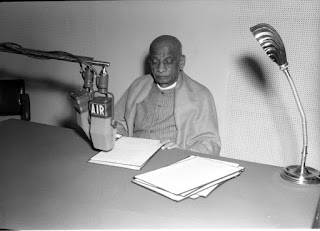Mr. Vithalbhai J. Patel has resigned the Presidentship of the Legislative Assembly. Under the reformed constitution, the Assembly was to elect its own President from amongst its elected members after the lapse of the first four years when it had a President nominated by the Governor - General. Mr. Patel was the first President so elected. In a long letter to the Viceroy, he sets forth the difficulties against which he had to contend during his term of office, due to the open and veiled opposition of the official members. Mr. Patel's position was more analogous to that of the Speaker of the British House of Commons in the days when it was engaged in its long struggle to establish its influence against the Crown than that at the present day when it has been firmly established. The only difference was that in Mr. Patel's case it was not the Crown he had to contend against, as the Viceroy's support was consistently extended to him, but the officials who had accepted the Reforms without much enthusiasm and were not inclined to go out of their way to make them a success. Mr. Patel proved to be a strong President in maintaining the rights of the elected members of the Assembly, and if at times he seemed to strain his powers almost to the breaking point in withstanding what he suspected to be attempted cucroachments on them, this is no more than what great Speakers of the House of Commons have done in similar circumstances. At the last session, the President was obliged to place on record his considered opinion that the Assembly was deprived by the attitude adopted by Government of the opportunity of a free debate on the proposal for imposing a differential duty on cotton goods imported from countries other than Great Britain. Mr. Patel has been forced in view of these facts to the conclusion that he could serve the country better by resigning the Presidentship. With most of the leading men of the Congress party in jail, there is great need for other leaders to keep the non-violent movement within the strict bounds of its creed, and for that reason alone, if for no other, Mr. Patel's resumption of his freedom of action, is very opportune.
Courtesy : - INDIAN SOCIAL REFORMER MAY 3, 1930
















